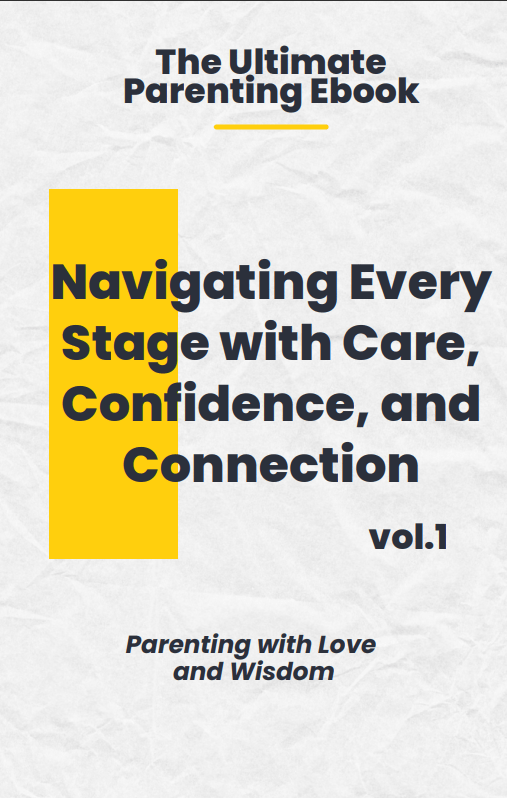Learn how to hire a Private Homeschool Teacher, including salary details, qualifications, and interview tips. Help your child excel with customized learning.

If you’re considering homeschooling your child, hiring a private homeschool teacher could be the solution you’re looking for. A private homeschool teacher offers one-on-one, personalized instruction, which can be especially beneficial if your child needs a tailored curriculum or specific academic support.
But before you leap, it’s important to understand how to hire a private homeschool teacher, what qualifications to look for, how much they typically earn, and the essential questions you should ask to find the best fit for your child’s needs.
In This Blog
ToggleWhat is the Private Homeschool Teacher’s Salary?
Understanding the pay range of a private homeschool teacher is crucial for setting a budget. Here’s a breakdown of what you can expect
- Average Salary Range: On average, a private homeschool teacher earns between $30,000 and $80,000 annually, depending on their experience, the region, and the number of students they teach. This wide range is due to various factors such as location, experience, and teaching hours.
- Hourly Rates: Some parents prefer to pay by the hour, which can range from $25 to $80 per hour. Teachers with specialized certifications or experience in advanced subjects may charge more.
- Factors Affecting Pay:
- Experience: More experienced teachers, particularly those with advanced degrees or certifications, typically command higher salaries.
- Responsibilities: If the private homeschool teacher is responsible for planning the curriculum, grading, and organizing extracurricular activities, the pay may be higher.
- Number of Students: If the teacher is responsible for homeschooling multiple children, their compensation will often reflect the added responsibility.
In comparison to traditional school teachers and tutors, a private homeschool teacher offers a more customized experience, which is why they tend to earn more than traditional teachers but sometimes less than specialized tutors.
How to Hire a Private Homeschool Teacher
Hiring the right private homeschool teacher can make all the difference in your child’s education. Here’s how to go about the process:

Determine Your Educational Needs
Before you start looking for a private homeschool teacher, you need to assess your child’s educational needs:
- Grade Level: What grade level is your child at? Does the private homeschool teacher need to teach multiple subjects across different grades, or will they be focusing on a specific level?
- Special Needs: Does your child have special learning needs that require a teacher with specific experience in special education?
- Subject Focus: Does your child need extra support in certain subjects, such as math or science, or are you looking for a teacher who can provide a well-rounded education?
Once you’ve clearly defined what you need, you’ll be in a better position to find the right private homeschool teacher.
Search for Candidates
Finding the right private homeschool teacher requires looking in the right places. Consider the following avenues:
- Homeschool Networks: Many local and online homeschool networks have resources or forums where teachers post availability.
- Specialized Agencies: Several agencies specialize in connecting families with qualified private homeschool teachers.
- Job Boards: Platforms like Indeed, Care.com, and Wyzant are popular for finding private homeschool teachers.
- Word of Mouth: Sometimes, the best teachers are found through recommendations from friends or family who homeschool their children.
When searching, decide whether you want in-person teaching or if remote instruction would work for your family. Some teachers are open to hybrid models where they teach both in-person and remotely.
Verify Credentials
Hiring a private homeschool teacher requires due diligence. Make sure to:
- Check Qualifications: Ensure the candidate has the necessary academic qualifications. A degree in education and teaching certification is ideal, though some states don’t require certification for homeschool teachers. Specialized qualifications, such as experience with Montessori or Waldorf methods, might also be valuable.
- Understand State Laws: Each state has different regulations regarding homeschooling, so be sure the teacher meets your state’s legal requirements.
- Conduct Background Checks: Request a background check, especially if the teacher will be spending time alone with your child.
- References: Always ask for and contact references. Speaking with other families who have hired the teacher will give you insights into their teaching style and effectiveness.
What Are the Criteria to Evaluate a Private Homeschool Teacher?
When evaluating potential private homeschool teachers, consider the following criteria:

Educational Background and Certifications
- Degrees: Does the teacher hold a degree in education or a related field?
- Teaching Certifications: Do they have state certification, and is it still valid?
- Specialized Training: If your child requires specific learning approaches, such as special education or gifted instruction, does the teacher have the necessary training?
Teaching Experience
- Homeschooling Experience: How much experience does the teacher have specifically with homeschooling? This is critical because homeschooling is very different from classroom teaching.
- Age/Grade Level: Do they have experience teaching students in the same grade as your child?
- Diverse Learning Environments: Have they worked with students from a variety of backgrounds or with varying academic abilities?
Compatibility with Your Child’s Learning Style
- Personalized Instruction: Can the teacher tailor lessons to your child’s unique learning style? Every child learns differently, so this is essential for effective education.
- Adaptability: Is the teacher flexible and able to adjust their approach based on your child’s progress and needs?
Curriculum Development Skills
- Familiarity with Homeschool Curriculum: Does the teacher have experience with homeschool curriculums, or are they able to create one specifically for your child?
- State Standards: Are they familiar with state requirements and able to ensure that your child is meeting those educational standards?
- Assessment Methods: Do they have experience with creating tests and other assessment tools to gauge your child’s progress?
Soft Skills
A private homeschool teacher also needs to have strong interpersonal skills, such as:
- Patience and Communication: Are they patient with students and able to clearly communicate lessons and feedback?
- Flexibility: Can they adapt to unexpected changes, whether it’s a change in schedule or a shift in your child’s learning needs?
- Creativity: Do they use creative teaching methods to keep your child engaged?
What Are the Essential Questions to Ask?
When interviewing a potential private homeschool teacher, ask these essential questions:
- What is your teaching background and specific experience with homeschooling?
- Are you certified to teach, and do you hold any specialized certifications for homeschooling?
- How do you go about designing lesson plans and creating the curriculum?
- How do you adapt your teaching methods to fit the needs of individual students?
- How do you manage disruptive behavior during lessons?
- What strategies do you use to keep students engaged and focused?
- How do you measure and track academic progress?
- What types of assessments do you use, and how often are they administered?
- What is your availability, and are you willing to adjust the schedule as needed?
- Are you open to including hands-on learning experiences like field trips or project-based learning?
- Can you provide references from families you have worked with in the past?
- Are you willing to undergo a background check?
What Legal and Logistical Considerations do I need to consider?
Before hiring a private homeschool teacher, there are legal and logistical issues to address.

State Homeschooling Laws
Each state has its own set of regulations regarding homeschooling, which you’ll need to comply with. Key considerations include:
- Attendance Tracking: Ensure that your private homeschool teacher keeps detailed records of your child’s attendance.
- Mandatory Subjects: Make sure the teacher is covering all required subjects according to state guidelines.
- Record-Keeping: The teacher should maintain thorough academic records, which may be required for state reviews or when transitioning your child back into a traditional school.
Tax Implications
Hiring a private homeschool teacher could have tax implications, depending on how the teacher is classified:
- Employee or Contractor: Decide whether you will classify the teacher as an employee (which may require payroll taxes and benefits) or as an independent contractor.
- Tax Deductions: Some homeschool-related expenses, including teacher salaries, may be tax-deductible. Check with a tax professional for specifics.
Contracts and Agreements
Before the private homeschool teacher begins work, ensure there is a formal contract in place. This contract should include:
- Responsibilities: Clearly outline the teacher’s duties, such as curriculum planning, grading, and field trip supervision.
- Compensation: Specify the salary or hourly rate, payment schedule, and any additional expenses (e.g., materials, travel).
- Schedule: Include details on the daily or weekly schedule, holidays, and breaks.
- Termination Clause: Include a section that outlines how either party can end the agreement.
Conclusion
Hiring a private homeschool teacher can be one of the best decisions you make for your child’s education. The process requires time, research, and careful consideration, but by following the steps outlined above, you’ll be able to find a teacher who is the right fit for your child’s unique needs.
Begin your search for a private homeschool teacher today by assessing your child’s needs, setting a budget, and looking for candidates who match your educational goals. The right teacher can make a world of difference in your child’s learning journey.
What qualities do you find most important in the private homeschool teacher? Do let me know in the comment section, I would love it.
You may also be interested in : How Parent Education Programs Help Your Child Feel Heard and Valued




